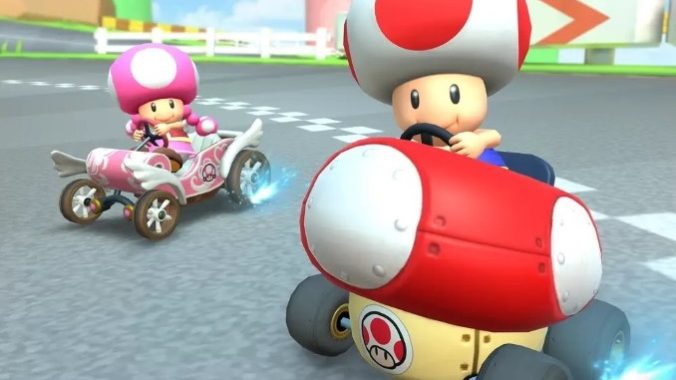
An anonymous California youth filed a potential class-action lawsuit through his father against Nintendo over their mobile game Mario Kart Tour’s lootbox mechanics, Axios reported.
The lawsuit, filed in California pursuant to laws in both that state and Washington, where Nintendo of America is located, alleges that the game’s gacha mechanics deployed unethical “dark patterns” to drive additional spending, did not adequately convey information to players about the in-app purchases, and that they particularly targeted minors. The suit was filed in the state of California in March, and was moved to a federal docket last week.
The plaintiff, identified as “N.A.” in the lawsuit, played the game in 2021 and 2022, spending over $170 of his father’s money on rubies, an in-game currency which players can spend to fire the “spotlight pipe,” which gives the player a random in-game reward similar to lootbox mechanics in games like Overwatch or Genshin Impact. While Nintendo removed the spotlight pipe last September, N.A. and his father still would like their money back, as state laws say that minors have a right to disaffirm contracts of this nature.
But beyond their personal grievances, the plaintiffs are also seeking refunds for all minors in the U.S. who paid for the spotlight pipe, citing unethical business practices as the reason. The game implements “dark patterns,” which the Federal Trade Commission describes as tactics used to trick consumers into spending more money, with an example in Mario Kart Tour being copious amounts of required grinding to unlock the equivalent of in-app purchases. The lawsuit argues that, due to relying on dark patterns, the spotlight pipe mechanic is unfair and deceptive, putting it in violation of consumer protection laws in California and Washington.
Additionally, N.A. and his father argue that the system particularly targeted young people. With the game being marketed to attract young players and with little in-game age gates for purchases, the suit claims that, intentionally or otherwise, young people were a target for lootbox sales, which is particularly concerning due to the greater vulnerability of young people to such mechanics.
“As with other lootbox games, [Nintendo’s] lootbox mechanism capitalized on and encouraged addictive behaviors, akin to gambling,” the lawsuit says. “Minors are especially susceptible to these addiction-enhancing elements of game design. The experience of acquiring surprise rewards and the associated excitement of uncovering unexpected in-game items holds a strong appeal for minors and reinforces their desire to keep playing and keep getting rewards.”
Lootbox mechanics have been the subject of legal debate for years now, having previously been banned or heavily restricted in multiple European countries and frequently coming under fire in similar lawsuits, including one filed just last year against Take-Two Interactive by the same class-action firm. Regardless, the practice still remains largely unregulated in the U.S.